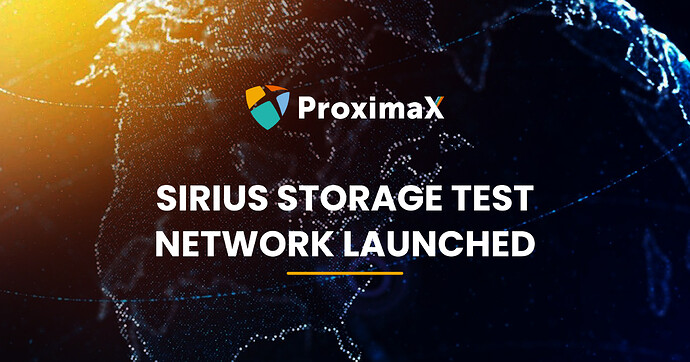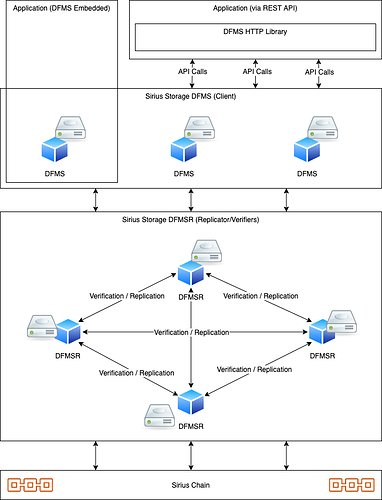It’s finally here! ProximaX Sirius Storage is now up and running on the test network. We’re opening the doors to community members who wish to join and participate as a storage operator in the test network.
What is Sirius Storage?
Sirius Storage is one of the core layers of the ProximaX Sirius platform. It’s a decentralized file management system running on an autonomous network system. It uses the libp2p as its core network library stack and several technologies to achieve verification, such as cross-block verification and node consensus processes named Proof of Storage.
How it works?
In our last blog post, we announced test network upgrades for Sirius Chain to introduce Sirius Storage specific plugins. This release is an extension of that. Sirius Storage uses the Sirius Chain to record all file management system events, and incentives.
When a consumer needs to use Sirius Storage, the consumer first creates a contract that will represent the storage allocation. Replicators will then auto-detect this new contract and join it if they can fulfil the required storage space, duration, and fee check. After this, the consumer can load directory or files which will create a virtual representation in the form of a merkle tree. This metadata is then replicated across the participants of the contract.
Below is the top to bottom diagram of how the DFMS (client) and DFMSR (Replicator) work together to provide the storage mechanism that an application can use.
Summary
This text will be hidden
The DFMS have HTTP API endpoints which comes with library wrappers that allows applications to directly integrate with the storage layer. At the time of publishing this blog, the Golang library wrapper is open. The next set of libraries will be written in TypeScript, JavaScript, Java, and C#.
The way it works is, the account associated to the storage node should have enough stakes (XPX) to participate. These stakes are then converted automatically to units (SO/SM) which represents the node’s capacity and capability to provide the service. Sirius Storage onboarding guide is available here.
Developer portal website is available here.
How to participate?
There are several ways to participate. First, one can be a storage operator and run a Replicator or a Replicator and Acceptor. The Replicators are closed systems that can only create replications while Acceptors have consumer web API endpoints to push files via http/s protocol.
To participate, please go thru our steps here.
What’s next?
Main network launch is slated for end of Q1 and is dependant on the performance testing results. Go/no-go meetings will be conducted to ensure that stakeholders are well informed of the development process and the testing that has been done.
The Test network for Sirius Storage in the mean time will continue to run and be padded with fixes and extra features along the way. We will conduct further penetration, performance, and security testing over the course of this month.
Supercontracts relies on the stability of Sirius Storage. Test network for Supercontracts is slated to launch in March 2020.


